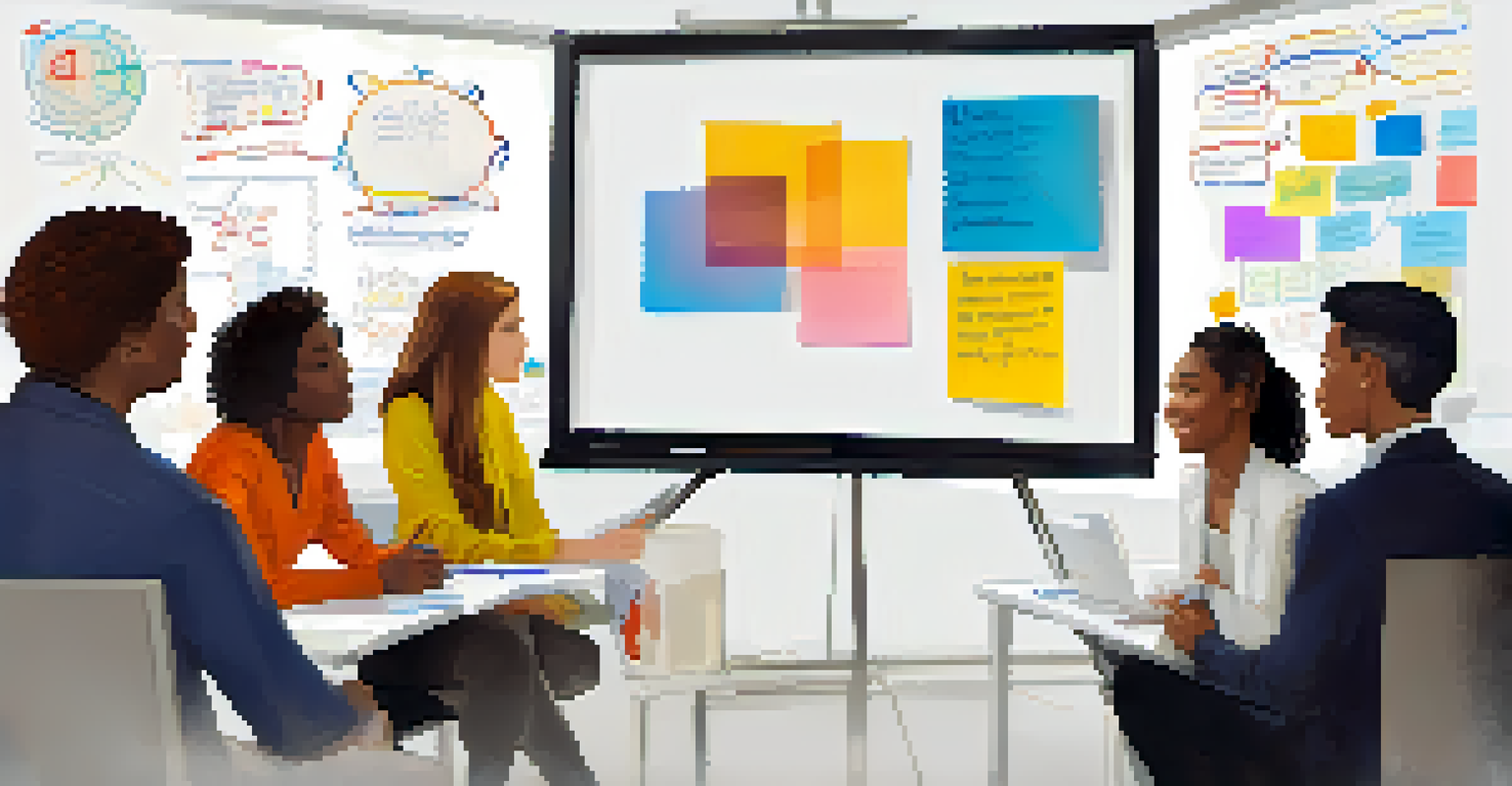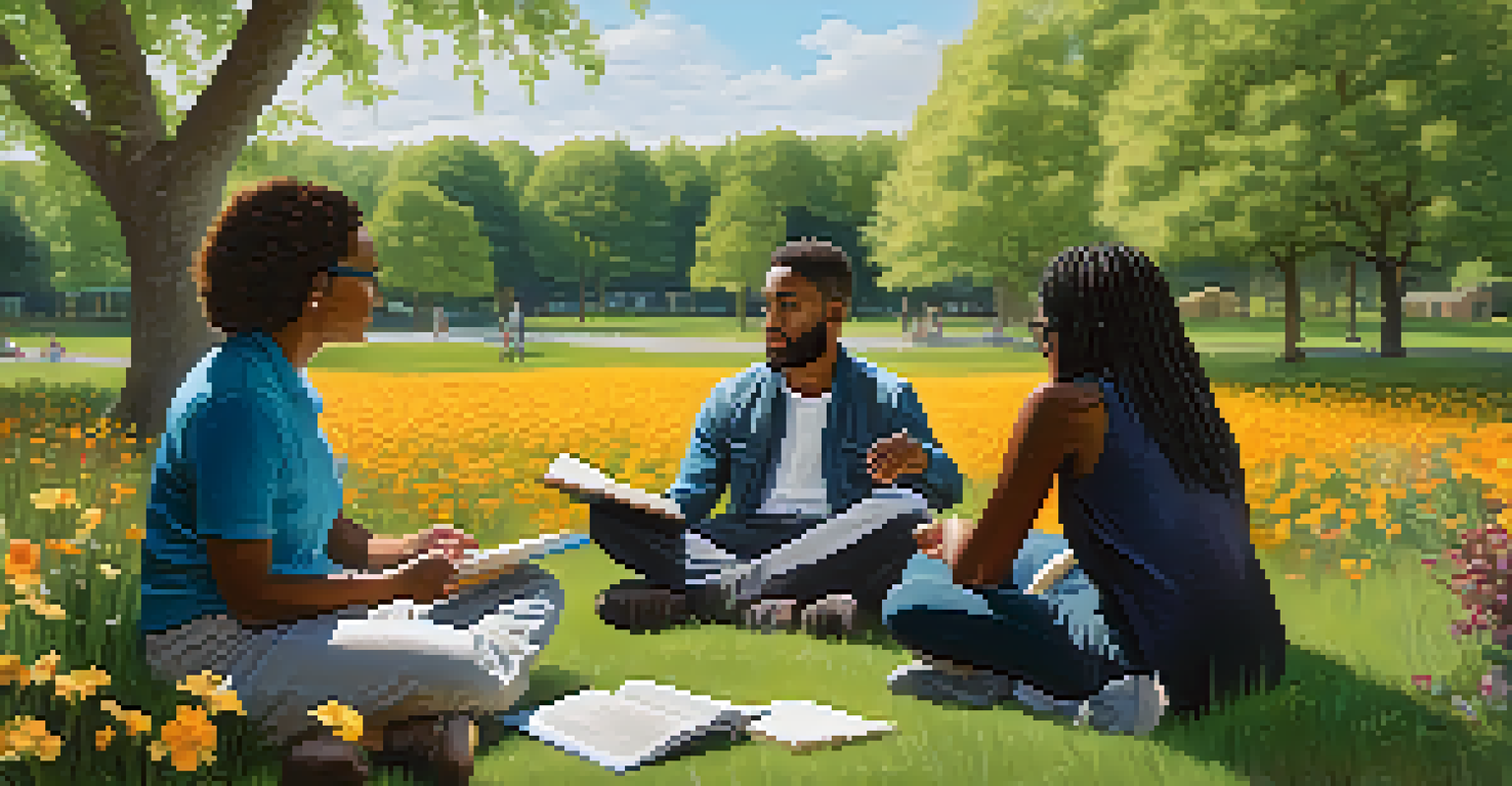How to Assess and Improve Your Critical Thinking Skills

Understanding the Importance of Critical Thinking
Critical thinking is more than just a skill; it's a vital part of effective decision-making. In our fast-paced world, the ability to analyze information critically can help us navigate complex problems and make informed choices. Think of it as your mental toolkit, equipping you with the tools to dissect arguments and evaluate evidence.
The ability to think critically is the foundation of all other skills.
When you engage in critical thinking, you don’t just accept information at face value. Instead, you question the sources, motives, and conclusions presented to you. This process not only enhances your understanding of various topics but also builds confidence in your own judgments and reasoning.
Moreover, strong critical thinking skills can lead to better problem-solving abilities. Picture a detective piecing together clues; critical thinkers sift through information to uncover the truth, leading to clearer insights and more effective solutions.
Identifying Your Current Critical Thinking Skills
Before you can improve, it’s crucial to understand where you currently stand. Consider keeping a journal of your daily decisions and the thought processes behind them. Reflecting on your reasoning can reveal patterns in your thinking, showing areas where you excel and where there’s room for growth.

You might also consider taking a critical thinking assessment. Many online tools can help you evaluate your skills in areas like analysis, interpretation, and inference. These assessments provide valuable feedback that can guide your improvement efforts.
Critical Thinking Enhances Decisions
Developing strong critical thinking skills enables individuals to analyze information effectively and make informed choices.
Lastly, seeking input from peers can offer a fresh perspective. Sometimes, a conversation with others can highlight blind spots in your thinking, helping you recognize the strengths and weaknesses in your thought processes.
Learning to Ask the Right Questions
Asking questions is at the heart of critical thinking. When you encounter a statement or argument, try to dig deeper by asking who, what, where, when, why, and how. These questions can help you uncover the underlying assumptions and evidence that shape the argument.
Critical thinking is the key to creativity and innovation.
For instance, if a friend shares a news article, instead of simply agreeing, you might ask, 'What sources does this article reference?' or 'What might be the author's bias?' This inquiry not only sharpens your analytical skills but also encourages a more nuanced understanding of complex issues.
Remember, the goal is not just to challenge others but to engage in a dialogue that enhances your own understanding. Over time, this habit will help you develop a more inquisitive mindset, leading to richer discussions and insights.
Practicing Active Listening for Better Understanding
Active listening is a powerful tool in critical thinking. It involves fully concentrating on what others are saying, rather than merely waiting for your turn to speak. By truly hearing others, you can grasp their perspectives better and respond more thoughtfully.
To practice active listening, try paraphrasing what the speaker has said before sharing your thoughts. For example, you might say, 'So what you’re saying is…' This technique not only shows respect for the speaker but also helps clarify your understanding.
Reflective Thinking Promotes Growth
Incorporating reflective thinking into your routine helps evaluate past decisions, illuminating areas for improvement.
Engaging in discussions with diverse viewpoints will also enhance your critical thinking. Exposure to different perspectives challenges your assumptions and encourages you to consider alternative solutions and ideas.
Evaluating Information Sources Critically
In today's digital age, we are bombarded with information from countless sources. Learning to evaluate the credibility of these sources is key to developing your critical thinking skills. Always ask yourself: Who published this information? What is their purpose? Are they qualified to speak on the topic?
For example, a blog post may provide compelling information, but if it's authored by someone with no expertise in the field, you should approach it with caution. Cross-referencing facts with reputable sources can help you build a more accurate understanding of the topic.
Additionally, consider the context in which information is presented. An article written to provoke outrage may misrepresent facts, so being diligent in your research can prevent you from falling prey to misinformation.
Developing a Habit of Reflective Thinking
Reflective thinking is about taking a step back to evaluate your thoughts and decisions. After making a choice or reaching a conclusion, ask yourself how you arrived at that point. What evidence did you consider? What biases might have influenced your thinking?
You can incorporate reflective thinking into your routine by setting aside time each week to review your decisions and their outcomes. This practice can illuminate patterns in your thinking and help you identify areas for improvement.
Curiosity Fuels Lifelong Learning
Embracing a mindset of curiosity and continuous learning is essential for enhancing critical thinking skills over time.
Over time, this habit will not only enhance your critical thinking but also promote personal growth. Each reflection can serve as a stepping stone, leading you to more informed and thoughtful decisions.
Embracing Continuous Learning and Curiosity
Critical thinking is not a one-time achievement; it’s a lifelong journey. Cultivating curiosity about the world around you and a desire to learn can significantly enhance your critical thinking skills. This mindset encourages you to explore new ideas and challenge your existing beliefs.
Engaging with books, podcasts, and discussions on various topics can broaden your knowledge base. The more you know, the more connections you can make, and the better you can evaluate information critically.

Additionally, consider joining discussion groups or classes focused on critical thinking. These environments provide opportunities to practice your skills with others, fostering a community of learners eager to improve together.